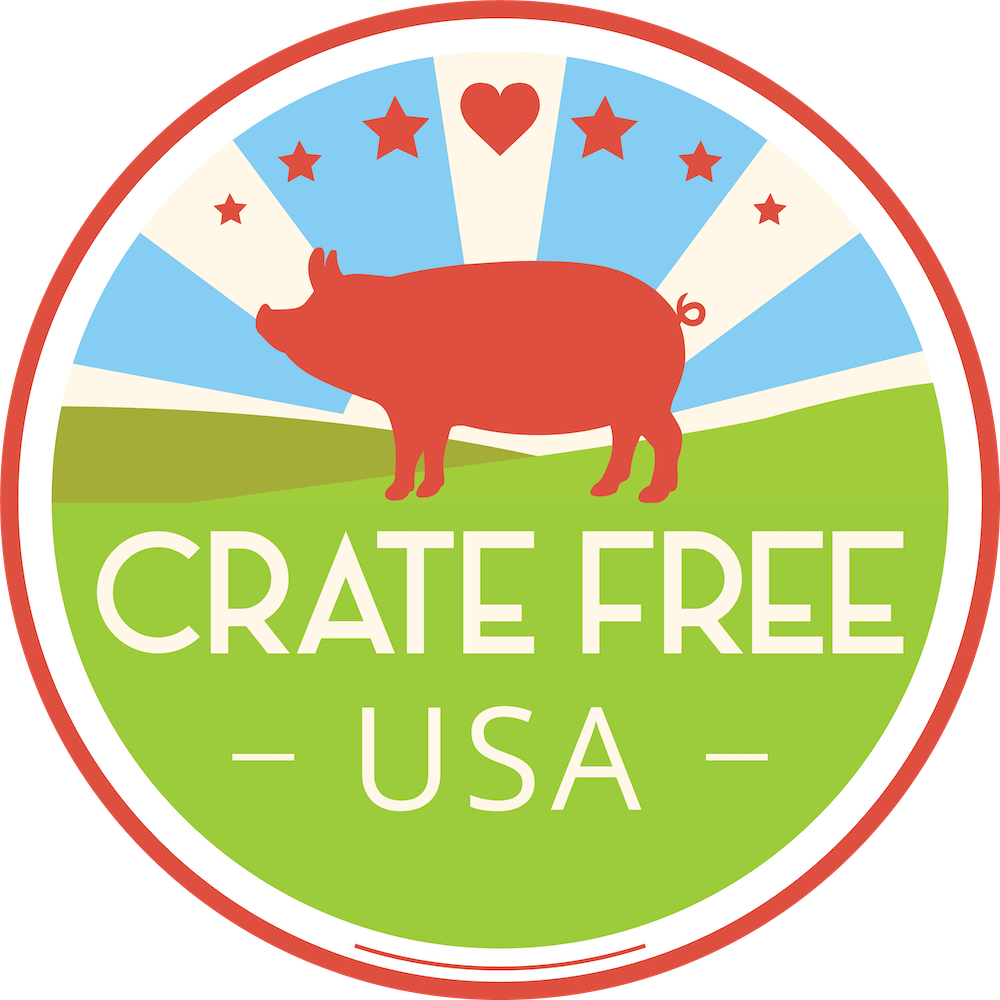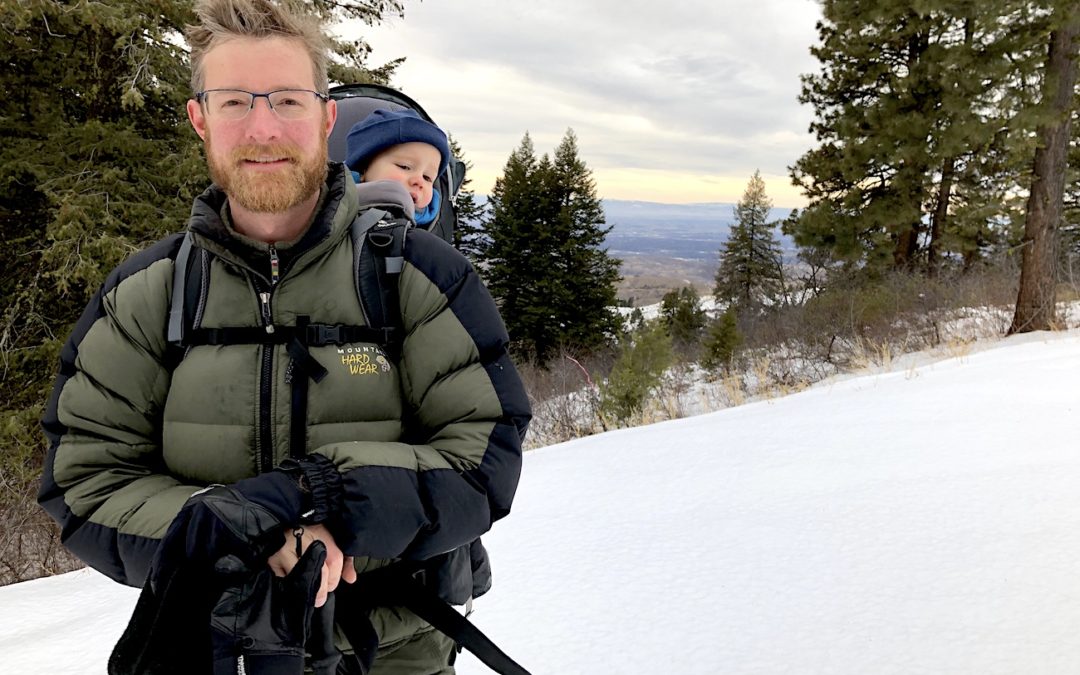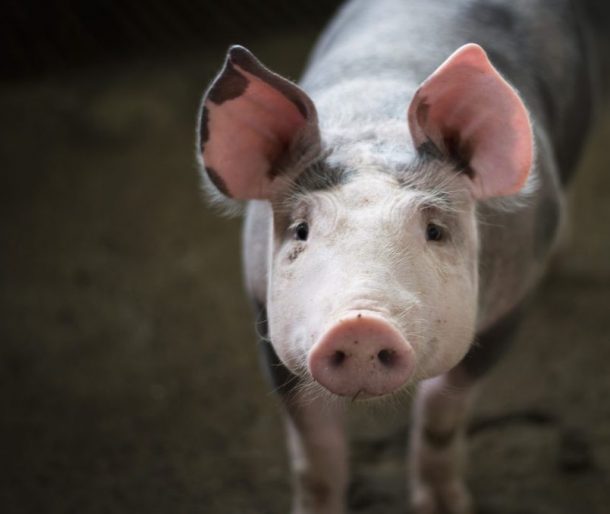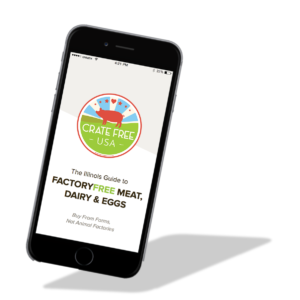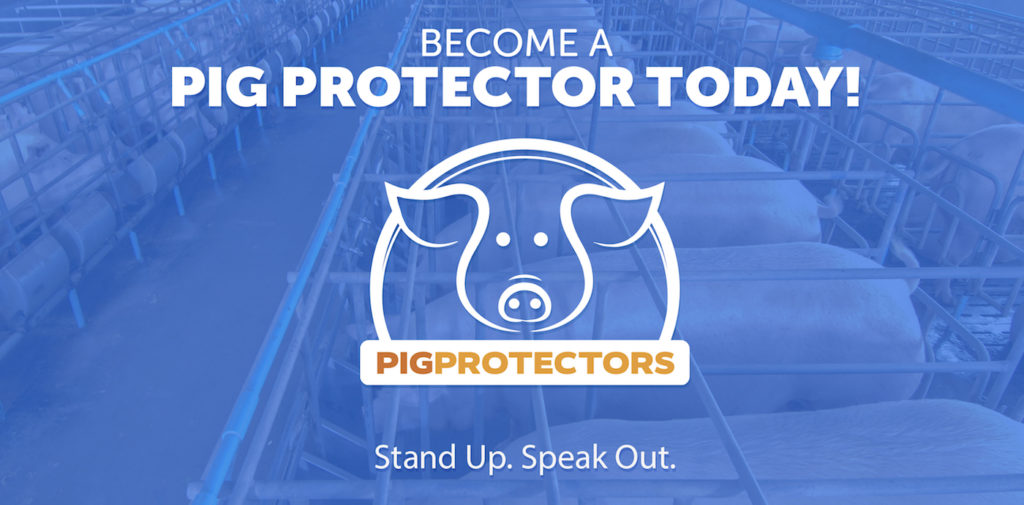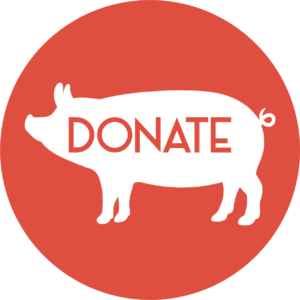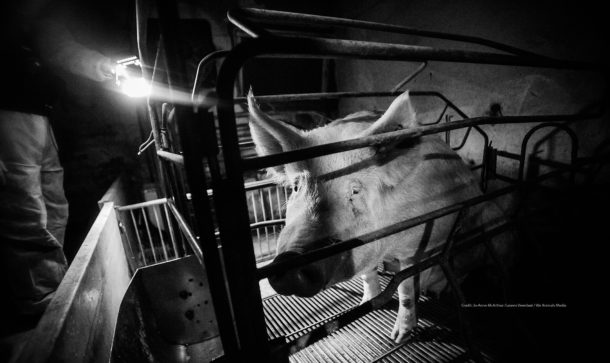Tyler Lobdell grew up around the farms in rural Illinois. He joined our team about a year ago and has since become a board member and most recently was a panelist at our Factory Farm Town Hall in March. Tyler is Food and Water Watch’s factory farming staff attorney.
Why do you volunteer for Crate Free USA?
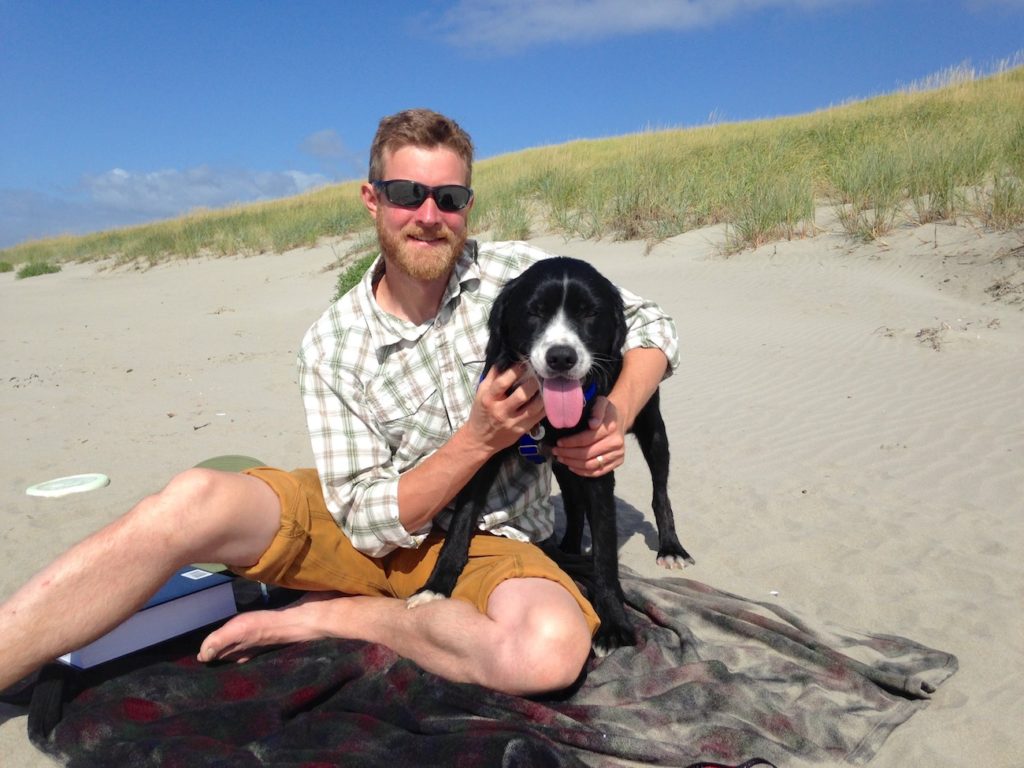
My reasons for volunteering with Crate Free USA are many, but I was initially motivated to volunteer after reading about CFI’s work to get Trader Joe’s to phase out suppliers using gestation crates for some of its pork products.
Gestation crates are one of the true horrors of industrial animal agriculture, so CFI’s focus here Is so important and I’m proud to be a part of it. Also, when I first started with CFI, I was nearing the end of a fellowship with the Animal Legal Defense Fund, and I was seeking opportunities to make sure that I could stay working in the animal protection space afterwards regardless of where I ended up professionally.
After starting as a volunteer, I quickly recognized that Jess and the whole team at CFI are an impressive bunch of advocates, and this solidified my desire to stay involved and do what I can to help advance CFI’s mission.
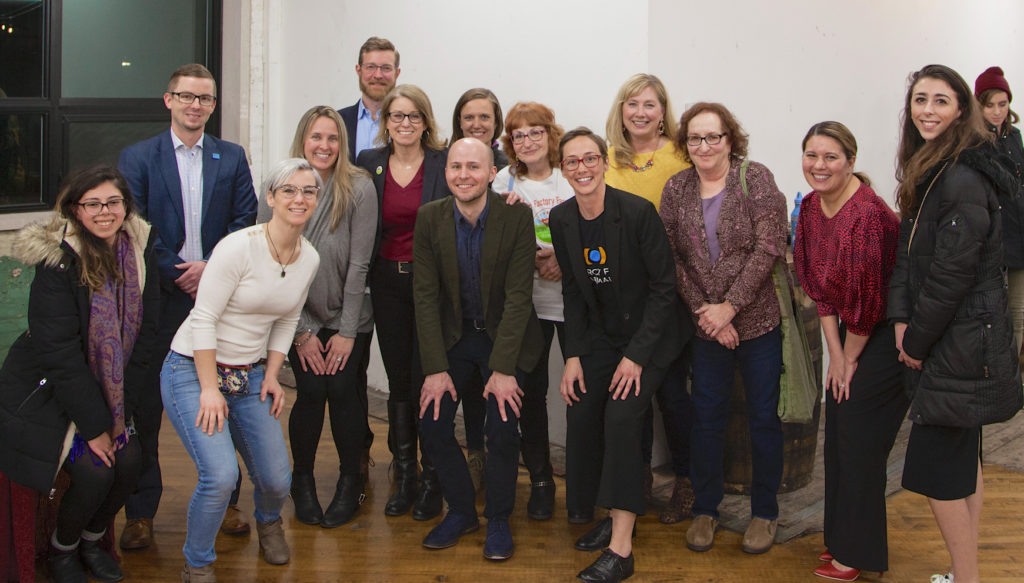
Tyler with his fellow CFI volunteers
How did you first learn about how animals on factory farms are treated?
While I have been passionate about animal protection from an early age, like many people I spent years completely unaware of the terrible plight nonhuman animals face in the factory farm system. I first became a vegetarian after learning just a little about how chickens are raised for one of the fast food chains I frequented as a teenager.
But it wasn’t until I went to law school and started studying animal law that I began to understand the magnitude of the suffering involved in raising animals for food on an industrial scale. Ever since then, I have been continuously learning more about just how bad things are and how much work is needed to bring about the change that is so desperately needed.
What do you think is unique about Crate Free USA?
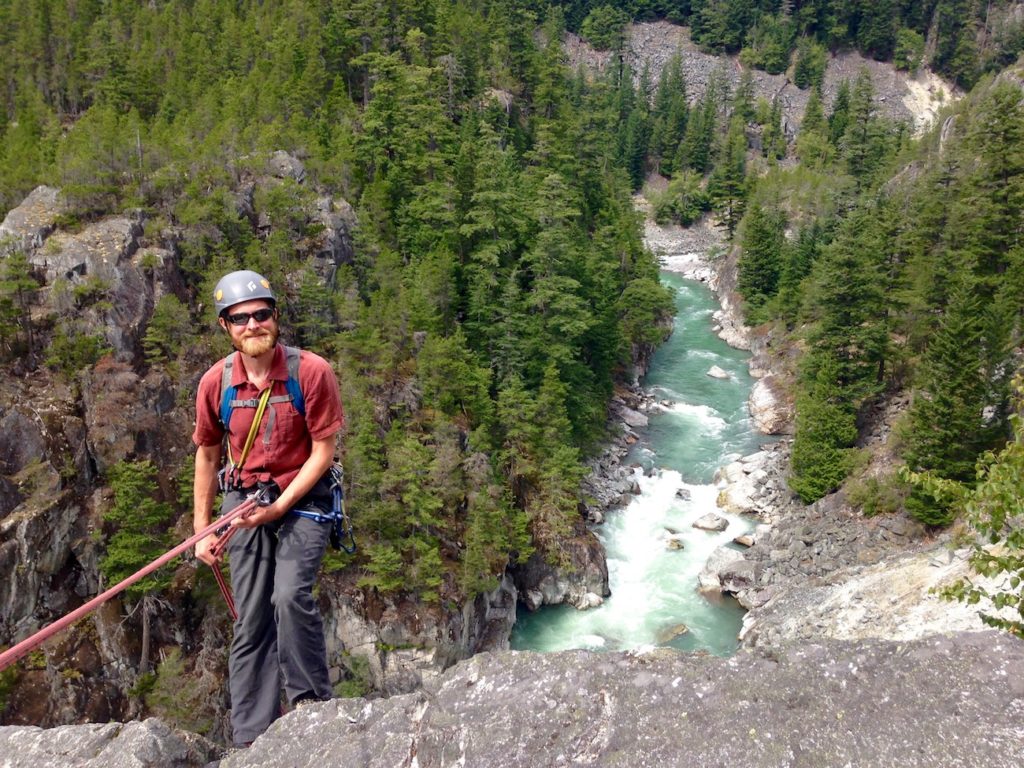
What makes CFI unique is its amazing all volunteer leadership and staff. It amazes me how much CFI can accomplish without any full-time paid staff. Our volunteers are dedicated and talented people that put so much hard work into advancing the cause of animal protection and CFI’s mission.
Why is this mission important to you?
I believe that nonhuman animals, including those raised for food, are sentient Earthlings who deserve our moral consideration. If we as a society are to raise animals for our benefit, the very least we can do is ensure that they are treated with dignity and respect while alive. CFI’s work to raise awareness about the abuses inherent to factory farming and to connect consumers with producers that do things right is critically important.
When not working with CFI, what do you do/like to do?
My day job is as Food & Water Watch’s factory farm staff attorney, where I use litigation and other legal advocacy to advance FWW’s mission of ending factory farming and replacing it with sustainable, small scale, and local agriculture that enhances the environment and empowers local communities. My other day job is helping raise my two year old son, which is the most rewarding “position” I’ve every held.
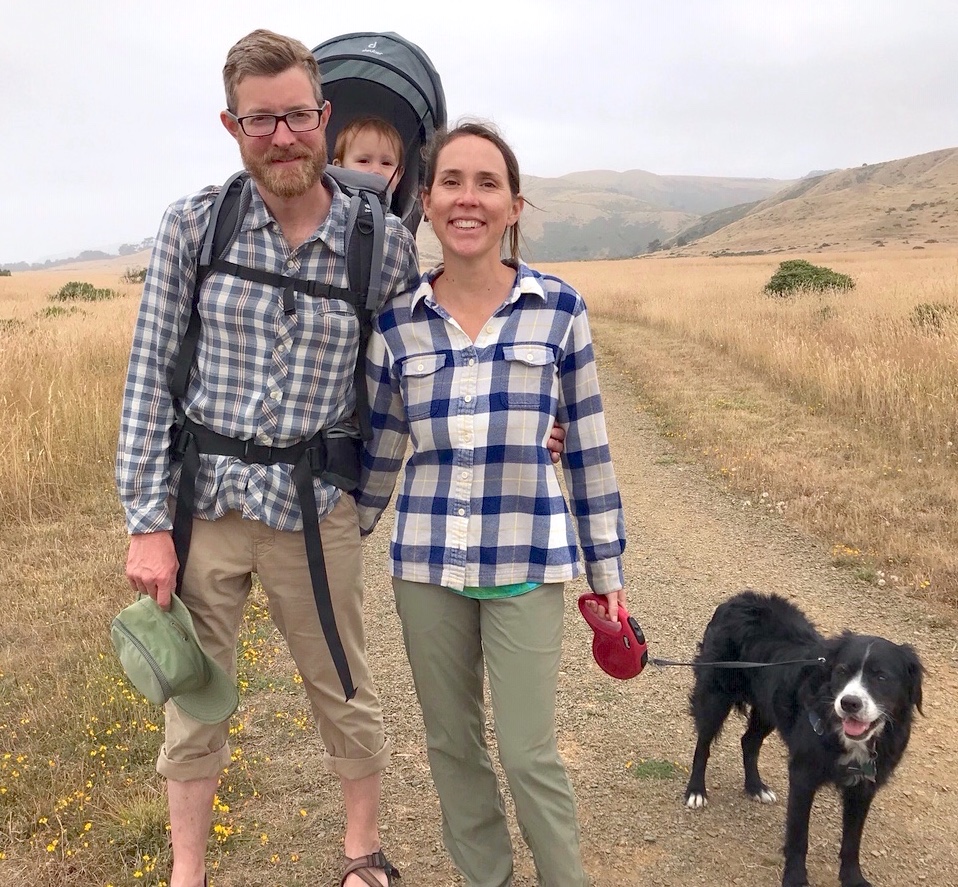
Tyler with his wife, son, and dog.
Outside of work, I try and spend as much time as possible in the outdoors to stay connected with what matters. I enjoy camping, backpacking, biking, rock climbing, and skiing.
Do you have pets or farm animals?
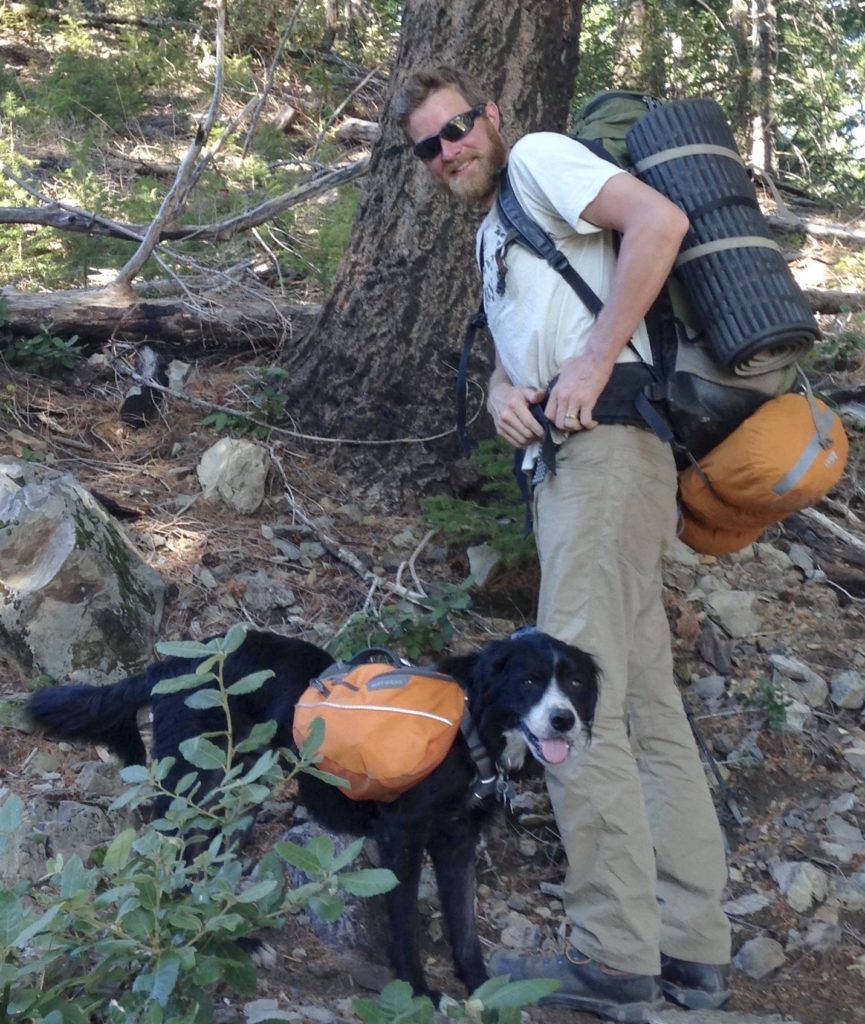
I currently live with my best friend, Moco, a dog we adopted from the euthanasia list who has enriched my life in ways I could never have imagined. He’s the best!
